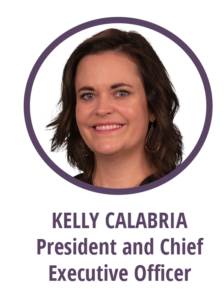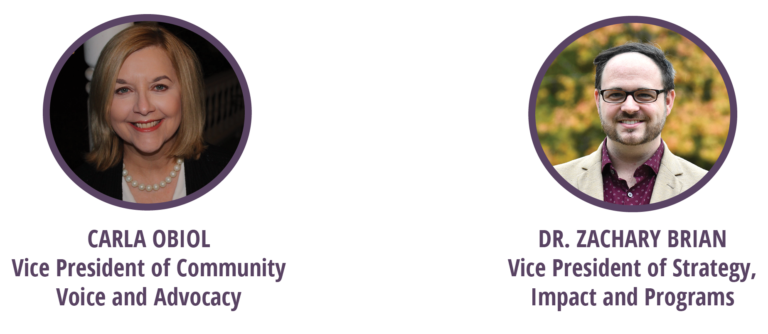FOR IMMEDIATE RELEASE
September 8, 2021
The Foundation for Health Leadership & Innovation Announces New Roles for Two Accomplished Leaders
Organizational changes part of a larger effort to accelerate FHLI’s work to deepen community impact across North Carolina
CARY, N.C. — The Foundation for Health Leadership & Innovation (FHLI) today announced two organizational changes meant to strengthen the organization’s work of advancing community-driven solutions and tackling systemic, generational health challenges and disparities facing rural communities and historically marginalized populations.
Carla Obiol and Dr. Zachary Brian — two of FHLI’s accomplished and experienced community leaders — are stepping into newly created roles as the organization builds on its legacy of innovation and works to cultivate a culture of experimentation, risk-taking, and community impact.
“When Jim Bernstein advocated, nearly 40 years ago, to form FHLI, he understood that to make lasting improvements in the health and wellness of North Carolinians, the organization must follow the guidance of the people in communities,” said Kelly Calabria, CEO and President of FHLI. “Today, we remain committed to this legacy. By elevating Carla and Zach to these new leadership roles, we are declaring that FHLI aims to be the leading voice in advancing community-driven solutions. We believe that the people living in each individual community are the key to solving the generational, systemic health challenges that plague our state.”
Carla Obiol will help elevate the voices of community in her new role as Vice President of Community Voice and Advocacy. Leveraging her deep experience in coalition-building, grassroots advocacy, and policy work, Carla will build on FHLI’s already impressive track record of influencing systems reform in North Carolina. In her new role, she is responsible for helping advance policies that level the playing field for rural and marginalized communities. Carla will continue to lead FHLI’s NC Rural Health Leadership Alliance and the NC Rural Coalition Fighting COVID-19.
“It’s true the pandemic cast a light on the health disparities and inequities that plague our state, but these are challenges that have existed for a long time,” said Carla Obiol, Vice President of Community Voice and Advocacy at FHLI. “Community leaders know what needs to be done to solve these challenges. They just need us to listen, advocate for them, and support them however we can.”
In his new role as Vice President of Impact, Strategy and Programs, Dr. Zach Brian assumes responsibility of building an approach to further transform FHLI beyond a program-based organization and into one that can influence statewide health systems change. Also serving as Director of North Carolina Oral Health Collaborative (NCOHC), Dr. Brian will build upon his record of success driving policy reform in the oral health arena to guide FHLI as it seeks to address generational, systemic health and healthcare barriers throughout the state.
“Our efforts to improve access to oral health care in North Carolina offer a true model for tackling challenges that have disproportionately affected our state’s most vulnerable populations for decades,” said Dr. Zachary Brian, Vice President of Impact, Strategy and Programs, and director of FHLI’s NC Oral Health Collaborative. “I look forward to applying this proven framework in my new role and further amplifying FHLI’s efforts to drive evidence-based, sustainable systems change across the state. FHLI is uniquely positioned to lead this important work.”
About the Foundation for Health Leadership & Innovation
The Foundation for Health Leadership & Innovation (FHLI) is a nonprofit organization that envisions healthy communities across North Carolina where everyone can flourish. FHLI develops and supports innovative partnerships that build a healthier North Carolina through collaboration and respect. With a long history in the state — and a deep understanding of its health care needs — FHLI scales solutions that benefit the entire state. FHLI staff are thought leaders and experts who bring communities together for a better, healthier North Carolina. Learn more at www.foundationhli.org.
###
For more information, contact:
Marni Schribman, Director of Communications & Public Relations
Foundation for Health Leadership & Innovation (FHLI)
Marni.schribman@foundationhli.org
919-259-4547


